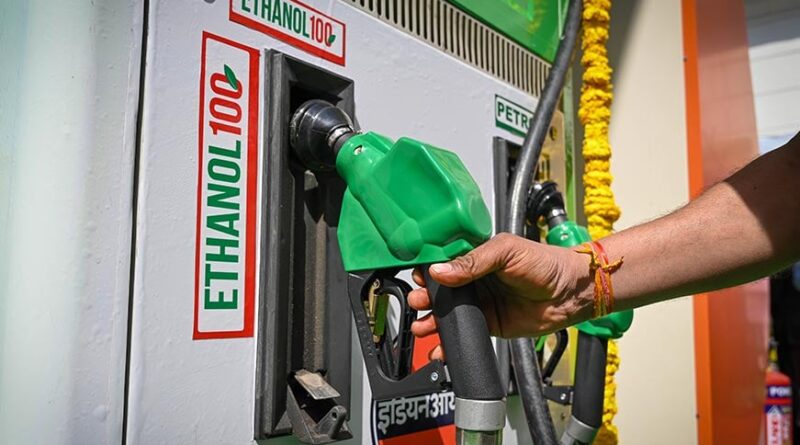Auto leaders defend ethanol blending, say ‘slight mileage impact but huge benefit to nation’
The debate around ethanol-blended petrol has intensified once again. Top representatives from the automotive and petroleum sectors o Saturday admitted that usage of 20% ethanol-blended fuel (E20) impacts the mileage of a vehicle “slightly” but it is outweighed by the “huge benefit” it brings “to the nation, to the society, to the farmer, to the environment, to the exchequer”.
At a joint press briefing, industry body Society of Indian Automobile Manufacturers (SIAM), Automotive Research Association of India (ARAI) and representatives of the Federation of Indian Petroleum Industry (FIPI) addressed concerns over efficiency, vehicle compatibility and warranty claims.
Mileage 2-4% drop, not 20-50%: SIAM
SIAM Executive Director PK Banerjee acknowledged that E20 use may reduce fuel efficiency by 2-4% but dismissed consumer claims of a 20-50% mileage drop as “misplaced misinformation”.
“The mileage-related challenges, there is admittance, clearly, that due to the intrinsic nature of the fuel there is a marginal drop. But this accrues a huge benefit to the nation, to the society, to the farmer, to the environment, to the exchequer and to all of us,” Banerjee said.
He explained that ethanol has 30-35% lower calorific value compared to petrol, which translates into around 6% lower energy density. However, the actual impact on fuel efficiency depends on driving conditions, traffic patterns and usage of air conditioning, he said.

Defending the government’s ethanol push, Toyota Kirloskar Motor’s Vikram Gulati argued that the long-term economic gains far outweigh short-term efficiency losses borne by consumers. “The money that would have been sent abroad for crude imports is now going to Indian farmers, who will become more economically resilient and contribute to domestic demand,” Gulati said.
He stressed that ethanol blending was enabling a smooth transition to energy self-reliance, while supporting sustainability goals and creating a model for other developing economies.
Earlier this month, Road and Highways Minister Nitin Gadkari hit out at a section of people that he claimed were spreading misinformation about E20 fuel. While speaking at an event, Gadkari had said, “By putting 20% Ethanol-blended Petrol, has there been any car in the country that has faced issues? Just name one.” His statement was followed by several posts on social media where vehicle owners shared their grievances about vehicle breakdowns after using E20 fuel.
Warranty and insurance claims “misplaced”
On apprehensions that the use of E20 could void vehicle warranties or complicate insurance claims, SIAM firmly dismissed such concerns. “The E20 fuel-related insurance and warranty, any claim, whoever is spreading is misplaced. There will be honouring of the warranty without any ifs and buts by OEMs,” Banerjee clarified. He further claimed that “millions of vehicles” have already been running on E20 without a single reported case of engine breakdown.
Adding technical validation, ARAI Director Reji Mathai cited studies conducted in 2016 and 2021, which found no adverse impact of E20 on vehicle performance. However, when asked for details on the report, Mathai confirmed the findings have been submitted to regulators and cannot be made public due to the confidentiality of data of the OEMs involved, news agency PTI reported.
Rural and economic gains
FIPI Advisor PS Ravi highlighted the macroeconomic and social benefits of ethanol blending. In 2025 alone, he said, ethanol procurement payments worth Rs 40,000 crore have flowed directly to farmers.
Since 2014-15, India has substituted 245 lakh metric tonnes of crude oil, saving the exchequer Rs 1.44 lakh crore in foreign exchange. For 2025, forex savings of Rs 43,000 crore are projected. According to Ravi, Ethanol blending has also helped reduce 763 LMT of carbon dioxide emissions.
“Blending ethanol has reduced crude import dependence, shielding India from global oil price shocks and disruptions, while giving us geopolitical leverage as a leader in sustainable fuels,” he added. The Supreme Court is scheduled to hear PIL on the usage of E20 fuel in the country tomorrow (September 1).
This article has been republished from The Financial Express.

